Hi everyone! My name’s Katie and I recently joined the Association as a Supporter Information Officer. My role offers me a unique perspective as I am in both the Research Team and the Development Team, which is part of Fundraising.
Alongside our brilliant Research Team, I will be writing for the MND Research Blog on a variety of MND related topics. Other than writing for the blog, my role is to translate the updates and reports that are written by the researchers working on the projects funded by the Association into layman terms. The reports are then given to our generous donors so that they can see how the projects are progressing. Although I didn’t specialise in neurological disorders during my time as a student, since starting at the association and learning more about this devastating disease, I am eager to hear about the latest advances in research and the steps we are taking to be closer to a world free of MND.
I graduated with an undergraduate degree in Biomedical Science from the University of Sheffield and during my degree I had the opportunity to learn about the processes and complex pathways that happen within the body. A big part of my decision to remain in science was that I wanted to help those with health conditions through research, either directly or indirectly. After my undergraduate degree, I did a Research Master’s degree in the University of Edinburgh (also in Biomedical Science) where I spent time in the laboratory researching how to make artificial tissue and organs.
After my Master’s I decided to take a look at the opportunities outside of the laboratory. Being involved in science isn’t just about doing experiments in the laboratory. As science can be quite daunting for many, communicating research to the general public and those affected by a disease is also vital. So, when I saw the opportunity to join the MND Association to help showcase the amazing work our researchers do, I took it!
As part of my role, I was recently given the opportunity to attend the MND Association’s Early Career Researchers event, also known as MND EnCouRage UK. It is a two-day event which aims to retain, encourage and nurture early career MND researchers. The event also provides early career researchers, established MND researchers, and people living with and affected by MND the chance to network and learn from each other.
During the event, the early career researchers were challenged to present their research in a way they aren’t used to. To develop their communications skills, they were asked to present their research in 3-minutes and in a way that a non-scientific audience would understand.
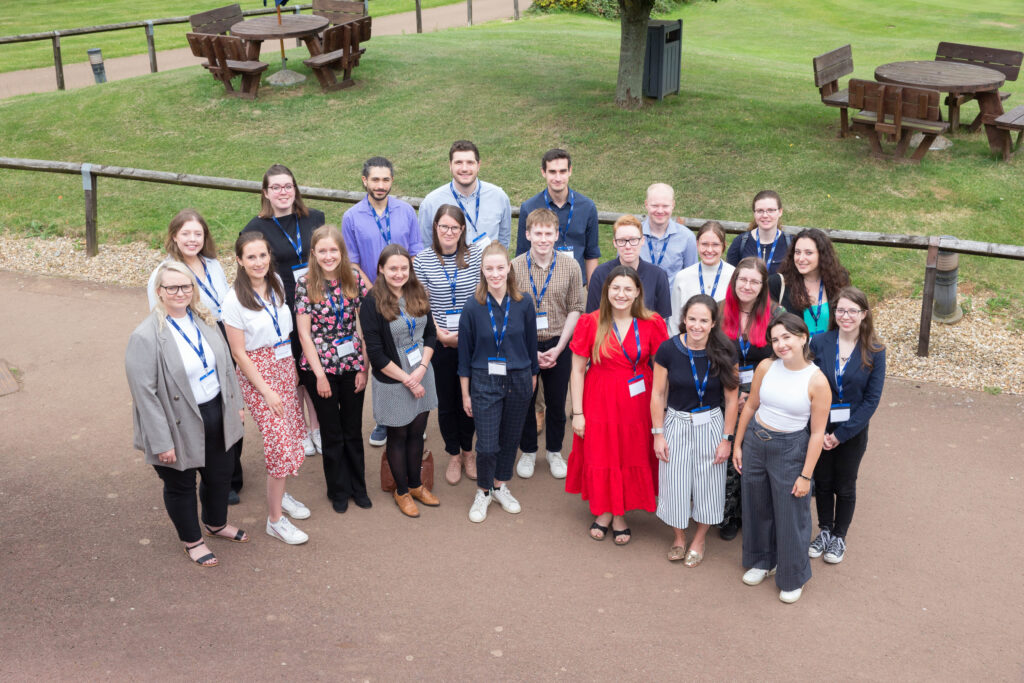
RELATED POST
Blog | 12 July 2023 | Charlotte Roy
MND EnCouRage UK: “One of the early career researchers may hold the cure in their hands. They just don’t know it yet.” – MND Research Blog
Throughout the talks I was amazed with the breadth of MND research being covered. Here are a couple of my highlights:
Creating a 3D cell model to study MND
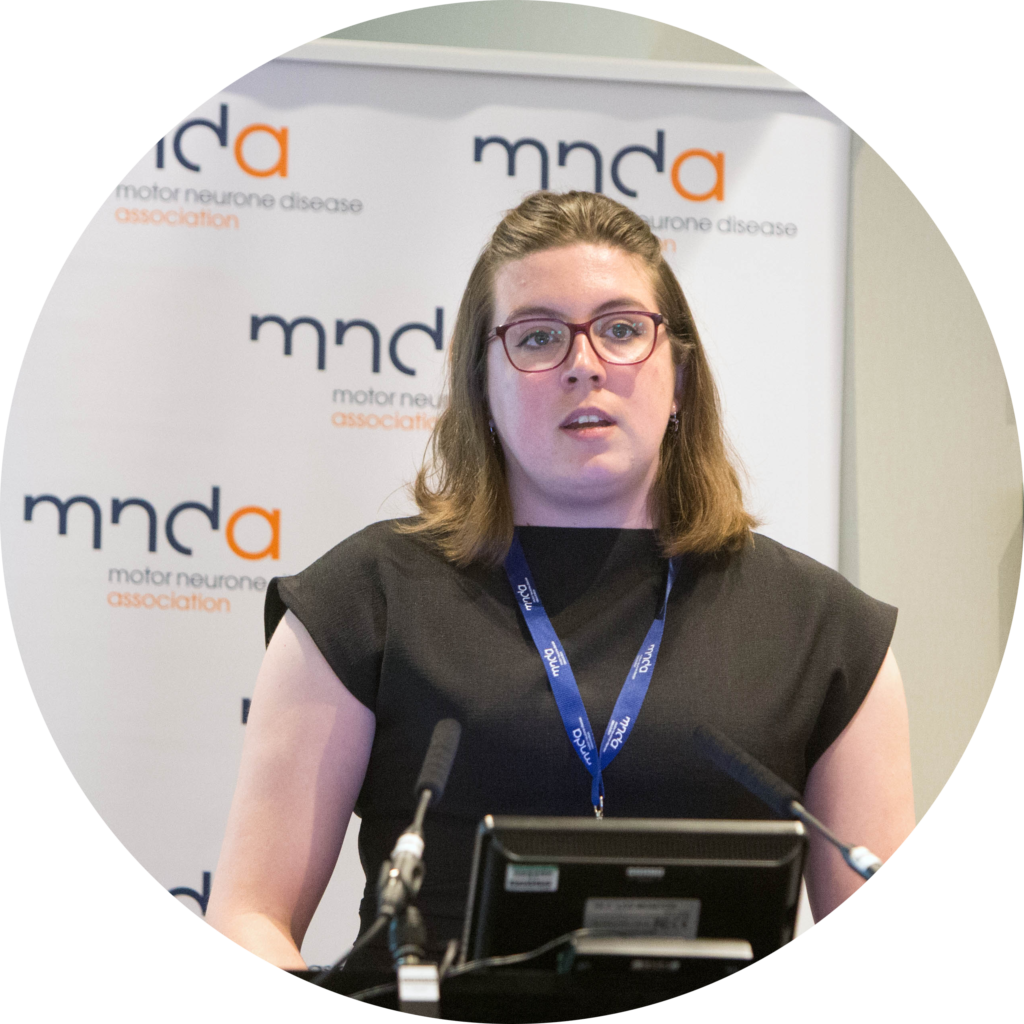
Cell models used to study MND are typically 2D as they are grown on a flat surface. This is an issue as 2D cell models don’t accurately represent the natural environment for motor neurons. To solve this, Marianne King from the University of Sheffield is aiming to develop a 3D model by growing motor neurons with glial cells, a type of cell that supports motor neurons. With a 3D model in place, this will allow motor neurons and glial cells to interact with each other as they do in the body. As glial cells are known to contribute to motor neuron death in MND, a more accurate model could help increase our understanding of underlying biological mechanisms of MND and lead to finding targets for potential therapeutics.
Developing new ways to measure disease progression
At the moment it is difficult to accurately predict MND progression. This is essential, not only in clinical trials to determine whether a treatment is effective, but in monitoring people living with MND as the disease progresses. A known way to determine MND progression is the ALSFRS-R scale which is the current gold standard, but newer methods are being developed. These include: biomarkers, biological molecules in the body which can be measured to track disease progression, and brain imaging to track brain activity. At the moment using biomarkers is not perfect and more needs to be done, it has been found that using several methods together could be a more accurate way to monitor MND.
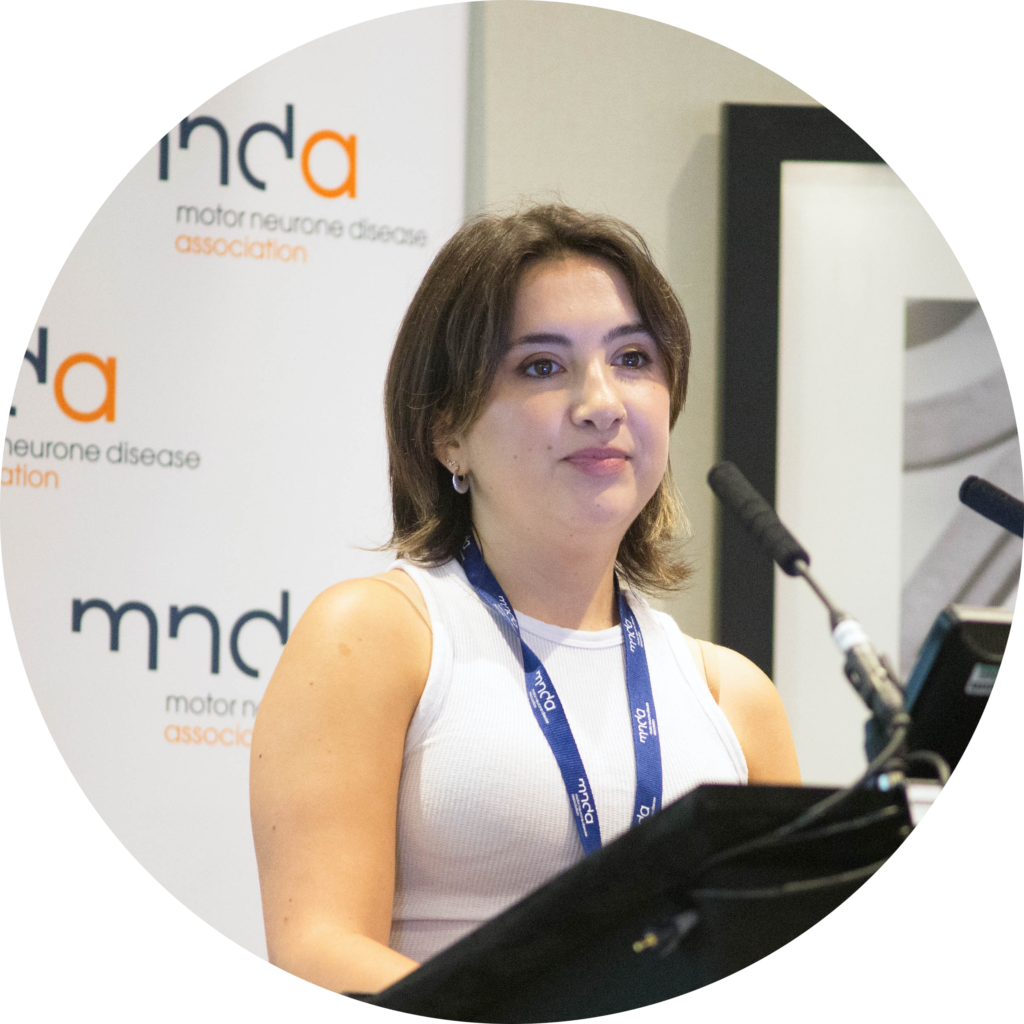
To build on this, Florence Townend from University College London is developing artificial intelligence (AI) to combine measures of disease progression to explore their relationships and find patterns to hopefully identify subgroups of people with similar prognosis times. At the end of her talk, Florence suggested that the AI has the potential to predict disease progression and could sort people living with MND into subgroups more accurately, making it easier to quickly identify individuals that meet the criteria for certain clinical trials.
Understanding more about a form of genetic MND
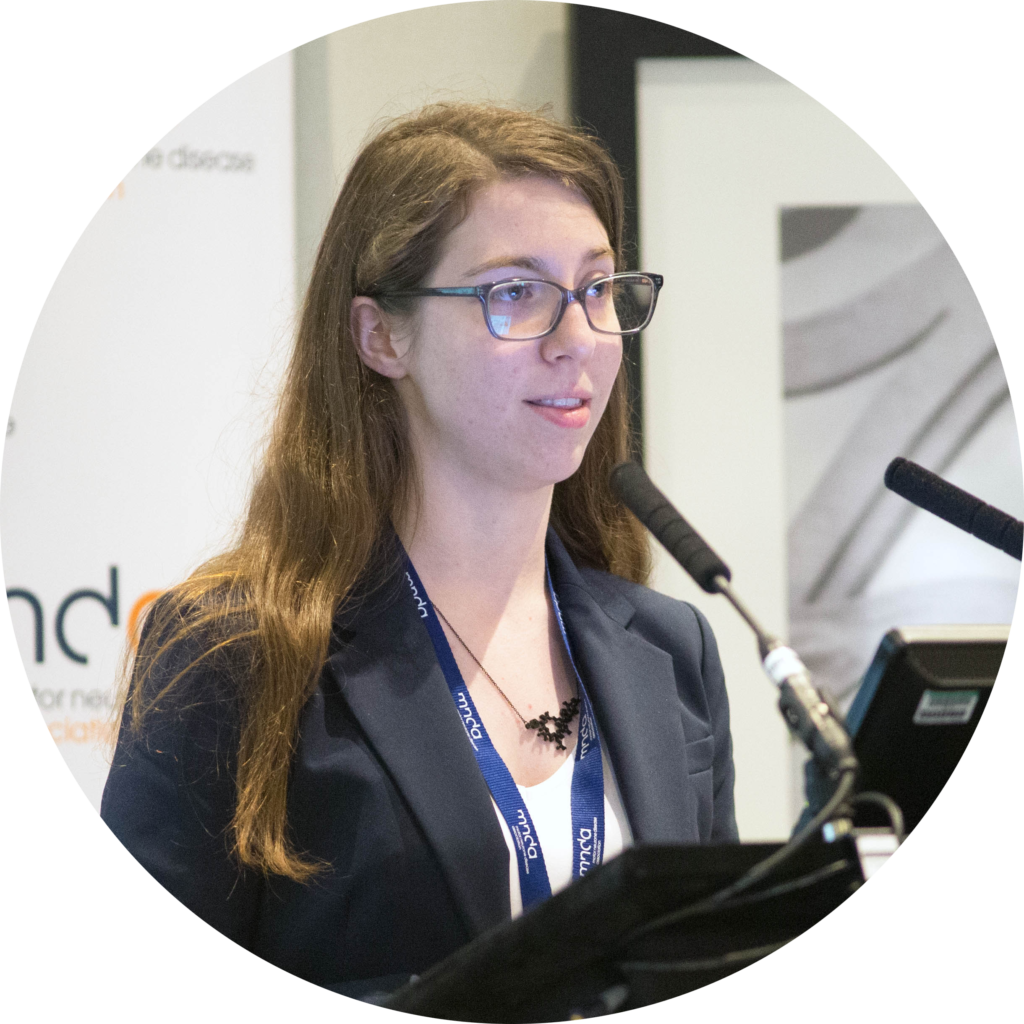
The most common genetic cause of MND is a mutation in the C9orf72 gene. The mutation leads to the production of toxic proteins known as dipeptide-repeats (DPRs). The build-up of DPRs in motor neurons is toxic to the cytoskeleton, the scaffolding that supports cell structure from within, which causes it to break down. This ultimately leads to motor neuron death as they lose their supportive internal scaffold. For that reason, it is important to understand the exact biological actions behind how DPRs damage the cytoskeleton. Charlotte Gale from the University of Sheffield is aiming to do this by using a unique fruit fly disease model that produces DPRs similar in size to the human disease. Understanding how DPRs damage the cytoskeleton could highlight potential therapeutic targets. Once viable targets have been identified, existing cytoskeleton-stabilising drugs will be tested to see if they are effective for MND.
It was fantastic to be a part of an event which brings the MND community together to connect, discuss research and ask questions. Taking part in conversations with different members of the MND community, highlighted the importance of hearing different perspectives and how we can all play a role in the fight against MND. I am excited to watch the connections and collaborations created at the event grow over the coming months and look forward to building on the success of this year’s event.
If you are interested in attending MND EnCouRage UK 2024, information will be available on our website in early 2024.

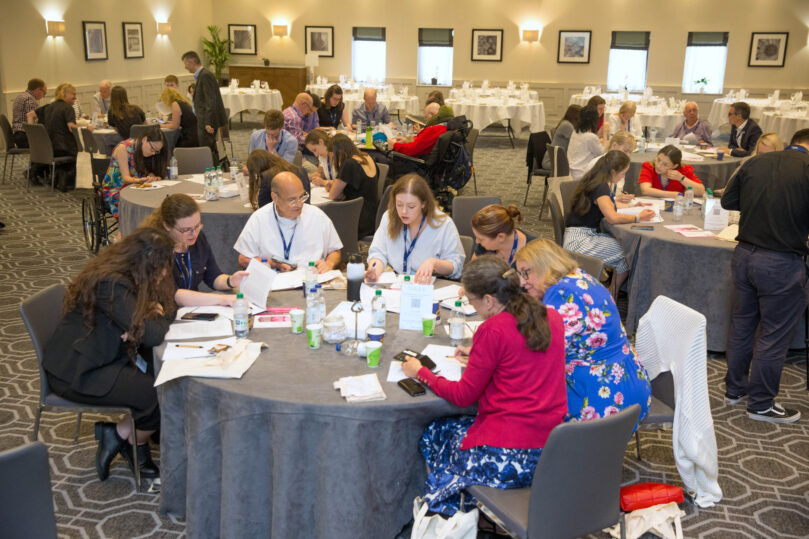

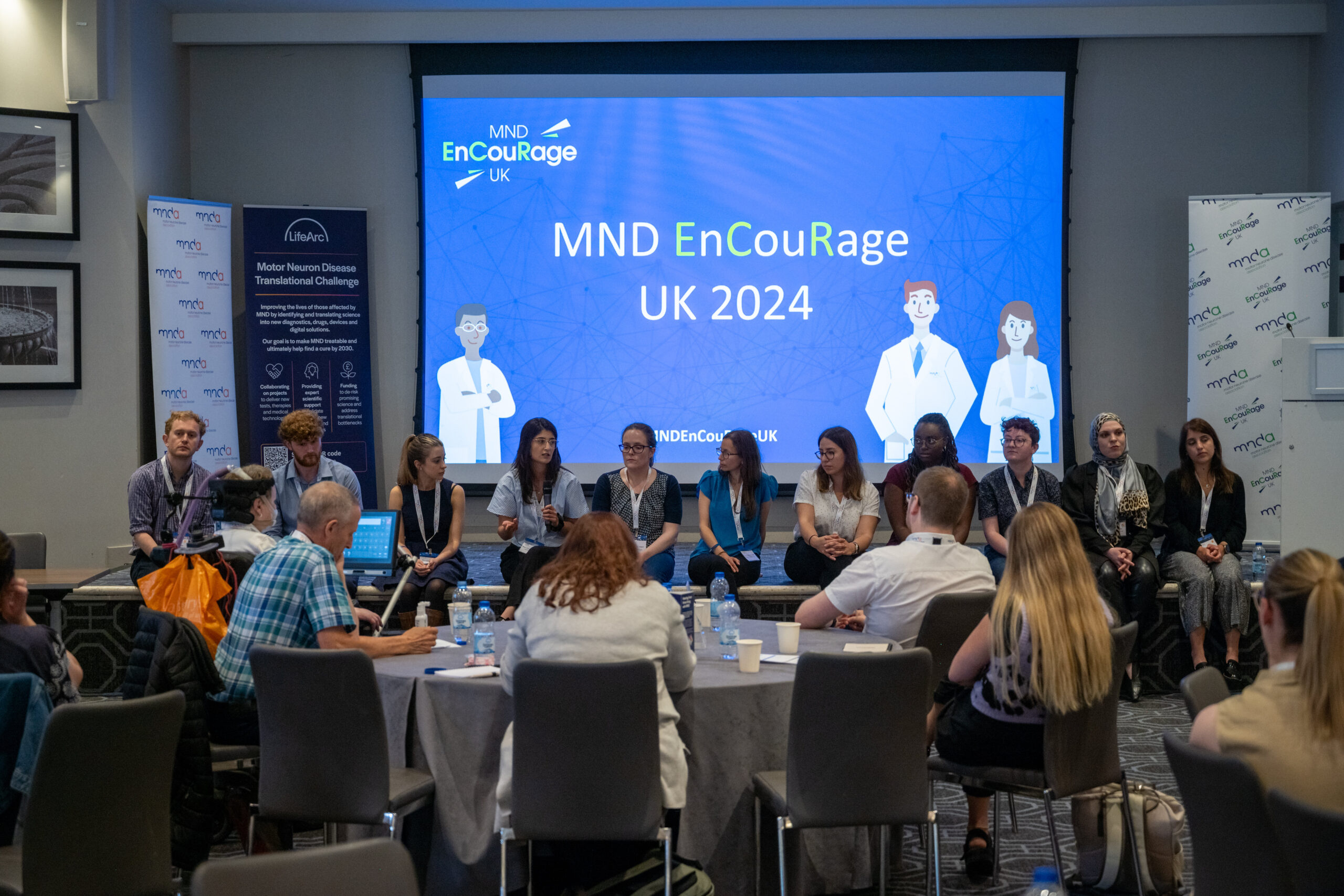


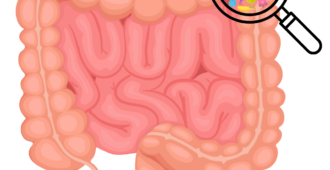
Thank you very much, Katie, Marianne, Florence and Charlotte.